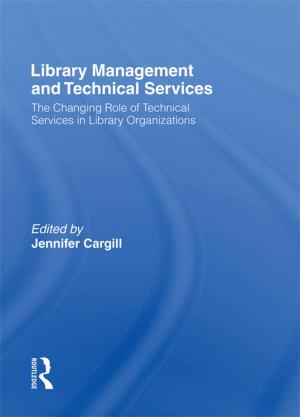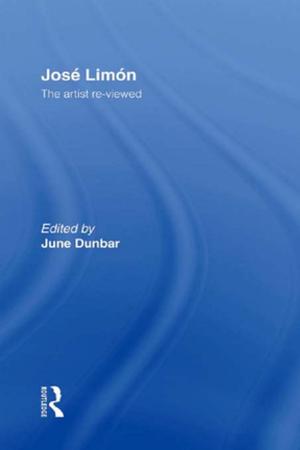Post-Tsunami Reconstruction in Indonesia
Negotiating Normativity through Gender Mainstreaming Initiatives in Aceh
Nonfiction, Social & Cultural Studies, Political Science, Government, Political Parties, International, International Relations| Author: | Marjaana Jauhola | ISBN: | 9781135044565 |
| Publisher: | Taylor and Francis | Publication: | June 26, 2013 |
| Imprint: | Routledge | Language: | English |
| Author: | Marjaana Jauhola |
| ISBN: | 9781135044565 |
| Publisher: | Taylor and Francis |
| Publication: | June 26, 2013 |
| Imprint: | Routledge |
| Language: | English |
This book offers a critical analysis of gender mainstreaming initiatives in the post-tsunami context in Indonesia. Aiming to challenge the terms of the debate in gender mainstreaming and disaster reconstruction efforts, Jauhola offers an important contribution for the discussion of what ‘feminisms and disasters’ could be. The work provides an in-depth analysis of three governmental practices of gender mainstreaming: the use of the concept pair sex/gender; the use of gender analysis and the use of project management tools and local subversion that challenges the potential normative violence of gender mainstreaming.
Providing feminist intersectional reading of gender mainstreaming the book aims to illustrate that this framework does not lack political alternatives, but rather, it offers an alternative focus for feminism and for the re-conceptualisation of ‘political’, and provides tools for practitioners of aid aiming to come to grips with the complexity of gender equality policy agenda and its potential violent social consequences in global politics.
Drawing on extensive field research in Aceh, this text is one of the first book length studies, and thus provides a significant addition to Indonesian literatures on intersectional analysis of gender, religion, heteronormativity, and feminist subversive practice. It is a vital resource for those interested in understanding global interconnections of localised disaster and conflict reconstruction.
This book offers a critical analysis of gender mainstreaming initiatives in the post-tsunami context in Indonesia. Aiming to challenge the terms of the debate in gender mainstreaming and disaster reconstruction efforts, Jauhola offers an important contribution for the discussion of what ‘feminisms and disasters’ could be. The work provides an in-depth analysis of three governmental practices of gender mainstreaming: the use of the concept pair sex/gender; the use of gender analysis and the use of project management tools and local subversion that challenges the potential normative violence of gender mainstreaming.
Providing feminist intersectional reading of gender mainstreaming the book aims to illustrate that this framework does not lack political alternatives, but rather, it offers an alternative focus for feminism and for the re-conceptualisation of ‘political’, and provides tools for practitioners of aid aiming to come to grips with the complexity of gender equality policy agenda and its potential violent social consequences in global politics.
Drawing on extensive field research in Aceh, this text is one of the first book length studies, and thus provides a significant addition to Indonesian literatures on intersectional analysis of gender, religion, heteronormativity, and feminist subversive practice. It is a vital resource for those interested in understanding global interconnections of localised disaster and conflict reconstruction.















